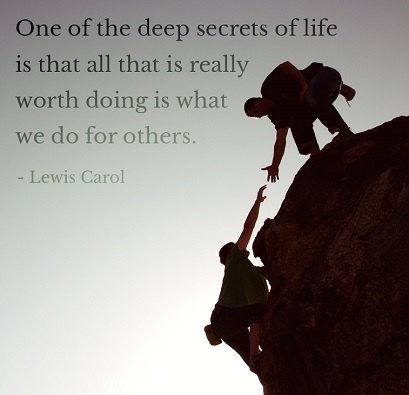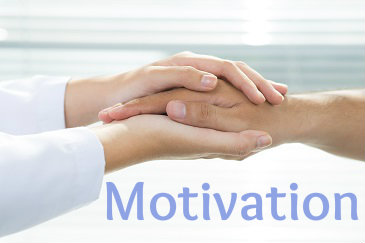16 Sep 2014
How Not To Hold An Intervention
Holding an intervention is a powerful way you and others can show an addicted loved one how much you care and want to help. Many addicts have a difficult time facing up to the reality of their own problems. Denial is a strong force keeping most addicts from getting help.
The power of an intervention is in helping the addict see that those who love her are coming together to help. But an intervention can go terribly wrong even with the best of intentions. If you have no idea what to do, consider consulting an intervention specialist to guide you through the process.
Intervention Don’ts
If you decide to go it alone, be sure to avoid these common pitfalls:
- Waiting For The Addict To Hit Rock Bottom: A common misconception is that an addict has to be completely at the bottom before she will accept help. This simply isn’t true. Addicts have an illness, but they are still rational people. You can reason with your loved one and waiting for her to hit bottom is dangerous. If a one-on-one confrontation hasn’t worked, get ready for an intervention instead of waiting for the problem to get worse.
 A Spontaneous Intervention: An intervention should never be held on an impulse. While you don’t want to wait too long to hold one, you also need to take some time to plan it. Many things can go wrong during one of these events, but with proper planning you can be ready for any outcome. Get together with the people who will be participating to plan the event. Conduct dry runs and come up with solutions for all the possible negative outcomes you can imagine might happen.
A Spontaneous Intervention: An intervention should never be held on an impulse. While you don’t want to wait too long to hold one, you also need to take some time to plan it. Many things can go wrong during one of these events, but with proper planning you can be ready for any outcome. Get together with the people who will be participating to plan the event. Conduct dry runs and come up with solutions for all the possible negative outcomes you can imagine might happen.
- Failing To Consider The Timing: Timing is crucial when staging an intervention. One misconception is that an intervention should occur when the addict is under the influence so that you can demonstrate the reality of her situation. This is a terrible idea. Always time the intervention to coincide with the addict at her most alert and sober. She will be better able to think clearly and process what you are saying. This is also safer, as addicts can be volatile and even violent when intoxicated.
- Being Soft About Consequences: An intervention is a time to get real with your addicted loved one. The time is long gone for making excuses for her behaviors or enabling her bad choices. Make sure your intervention includes consequences and be serious about them. Each person participating should be prepared with consequences for the addict. These could include cutting off financial help, access to the kids or any other measure that is important to the addict. Whatever you do, don’t backtrack on these. Be firm and stick to them.
- Cutting Off Moral Support: Tough love is important, to an extent. You need to set firm consequences and stick by them, but your love and support should never waver. Never tell your loved one that you and the other participants will refuse to be there for her. Do cut off all the ways in which you enable her habit, but make sure she knows that you will be there to support her as she gets treatment.
Holding an intervention could be the most important thing you do for your addicted loved one, as long as you avoid these big mistakes. If the idea of hosting such an event makes you nervous, or you fear that your loved one could be violent and hurt someone, consult with a professional first. Safety is the most important aspect and if it is in jeopardy, the intervention is not worth the risk.
Now Learn How To Stage An Intervention. Successful Interventions Are Possible!
Call Us Now To Speak With A Qualified Addiction Counselor – We Are Here For You 24/7
23 Jul 2014
How To Stage An Intervention
Helping someone you love admit to having an addiction and agree to get help is a big challenge. It can be tempting to lecture, nag, and even beg your loved one to get help, but sometimes what it really takes is a focused confrontation. When it seems like your loved one will never let go of denial or agree to get help, consider a group intervention. Before you throw one together, make sure you understand what it means to host an intervention, learn how to optimize the chance of success and consider what to do if it fails.
What Is An Intervention?
 An intervention is a planned meeting during which you and other loved ones confront someone who is struggling with addiction. While interventions have traditionally involved asking the addict to sit and be quiet while others talk, more recently they have become more like conversations. The more modern approach allows the addict to bring up his concerns and to ask questions in a safe environment. The idea is to not blame or shame the addict, but to make sure he understands how many people care about him, are worried about him and want to help.
An intervention is a planned meeting during which you and other loved ones confront someone who is struggling with addiction. While interventions have traditionally involved asking the addict to sit and be quiet while others talk, more recently they have become more like conversations. The more modern approach allows the addict to bring up his concerns and to ask questions in a safe environment. The idea is to not blame or shame the addict, but to make sure he understands how many people care about him, are worried about him and want to help.
An intervention typically includes a planned approach, specific examples for the addict regarding his behaviors and their consequences, and a statement from all of the participants regarding what they will do if he continues to refuse help. Participants may include family members, friends, coworkers and sometimes an addiction professional.
What Makes An Intervention Successful?
You can never guarantee that your intervention will be successful (success is measured by the willingness of the addict to accept and get help), but you can ensure the best odds of success by carefully preparing for the event. An intervention should start with thorough planning that includes participants, deciding what each person will say and even having an outline for how the event will proceed. Practicing ahead of time is also a good idea, as is asking each person to write down what he or she wants to say.
A good intervention should also include specific consequences. For instance, you might tell the addict that you are cutting off financial support if he refuses to get help. Each person participating should be ready with a consequence to help motivate the addict to accept treatment. It is also important to select the timing of the intervention carefully. It would be best if your loved one is sober, so choose a time and day that this is most likely to be the case. And finally, be ready with treatment options.
When To Rely On A Professional Interventionist
There are addiction professionals who specialize in planning and hosting interventions and if you feel that you cannot handle holding one on your own, consider consulting with one of these specialists. There are other good reasons to turn to a seasoned interventionist professional: if your loved one has a serious mental illness, has a history of violence, cannot be counted on to be sober for the event or if he shows signs of suicidal behaviors or attitudes. In these cases, confronting your loved one may be beyond your abilities.
When An Intervention Plan Doesn’t Work
As you prepare for the intervention, be ready for the possibility that your loved one will continue to deny his problem and refuse to get treatment. Make sure that everyone involved is prepared to follow through with the consequences that you are setting for him. If it means cutting this person out of your life because of the harm he is causing you, be ready to do it. Remember that you cannot control his choices or his behaviors. You can offer him all the help in the world, but only he can accept it.
If You Need More Help With An Intervention Plan, Call Us Now! Help Is Available 24/7
Twelve-step programs are mutual self-help programs that use a combination of gradual goals (i.e., steps) and peer support to help recovering substance addicts establish and maintain a long-term commitment to avoiding further substance use. However, not all people who join these programs attend regularly or successfully abstain from substance intake. In a study published in May 2014 in the journal Addiction, researchers from the U.S. and Norway assessed the effectiveness of a technique called motivational intervention in helping 12-step participants increase their program involvement and their ability avoid substance relapses.
12-Step Approach
 The 12-step approach was initiated in the 1930s with the formation of Alcoholics Anonymous. Participants in 12-step-based programs commit to a progressive series of actions designed to help them recover from active involvement in the use of alcohol or other substances of abuse. These actions including admitting a lack of self-control over addictive behaviors, making a call to a higher or greater power to assist in the recovery process, examining and atoning for damaging conduct while under the influence of drugs or alcohol, and eventually providing assistance to others not as far along the path of recovery. As a rule, 12-step programs rely heavily on peer sponsorship provided by longer-term members. The 12-step approach is widely used and has proven effective as an aid to the substance recovery efforts carried out in treatment centers that deal with problems such as alcohol addiction, cocaine addiction and opioid narcotic addiction.
The 12-step approach was initiated in the 1930s with the formation of Alcoholics Anonymous. Participants in 12-step-based programs commit to a progressive series of actions designed to help them recover from active involvement in the use of alcohol or other substances of abuse. These actions including admitting a lack of self-control over addictive behaviors, making a call to a higher or greater power to assist in the recovery process, examining and atoning for damaging conduct while under the influence of drugs or alcohol, and eventually providing assistance to others not as far along the path of recovery. As a rule, 12-step programs rely heavily on peer sponsorship provided by longer-term members. The 12-step approach is widely used and has proven effective as an aid to the substance recovery efforts carried out in treatment centers that deal with problems such as alcohol addiction, cocaine addiction and opioid narcotic addiction.
Motivational Interventions
Many people who enter substance recovery programs do so with mixed feelings about the recovery process. In fact, significant numbers of program participants enter treatment only at the urging of others. People with ambivalent or hostile feelings toward substance recovery commonly fail to participate fully in their programs, meet the specific objectives that programs set for their clients/patients or successfully complete their program involvement. Motivational interventions are designed to help program participants uncover the mixed or negative feelings they may have about substance recovery, and also to help them change their minds and become more willing and proactive in their treatment. As a rule, practitioners of motivational interventions work cooperatively with clients/patients in an interactive process that strives to avoid a confrontational or antagonistic atmosphere. While a motivational intervention can help at almost any stage of treatment, it typically has its biggest impact in the initial stages of recovery.
Usefulness In 12-Step Programs
In the study published in Addiction, researchers from Stanford University, the Department of Veterans Affairs and Norway’s University of Oslo and Sorlandet Hospital used an examination of 140 Norwegians receiving treatment for alcoholism to assess the usefulness of motivational interventions in promoting involvement in 12-step programs. All of these study participants were in inpatient facilities for alcohol detoxification. Half of the participants received a motivational intervention called 12-step facilitation in two 30-minute sessions. This form of intervention is designed to increase clients’/patients’ level of comfort with 12-step involvement. The facilitation sessions provided during the study included detailed explanations of how substance addicts lose control over their behaviors, a DVD on the 12-step process created by Alcoholics Anonymous and immediately available resources for making direct contact with 12-step groups. The other half of the study participants received only basic advice on 12-step resources in a brief informational session.
Six months after the study participants concluded their involvement in inpatient detoxification, the researchers compared the level of 12-step involvement among the people who received motivational interventions to the level of involvement among the people who only received brief advice on 12-step resources. They concluded that the participants who received motivational interventions were significantly more likely to attend 12-step meetings than those who received only brief advice. They also concluded that the motivational intervention group used both alcohol and drugs on fewer total days than the brief advice group.
Despite the increased 12-step involvement and fewer days of substance use, the authors of the study published in Addiction concluded that the recovering alcoholics who received motivational interventions did not remain abstinent from substance use any more often than their counterparts who received brief advice on available 12-step resources. In addition, motivational intervention did not lead to a decrease in the severity of alcohol-related symptoms. Still, the authors note that, since motivational intervention recipients do attend 12-step meetings more often and use drugs and alcohol on fewer days, the technique may prove useful as part of the recovery process for alcoholics who go through alcohol detoxification.
Texas Christian University (TCU) is coming under fire after discovering that its star player has been dabbling in marijuana as some accuse the University of turning a blind eye. Quarterback Casey Pachall, who set a new school record last year for passing the ball 2,921 yards, issued a regretful statement to the media taking responsibility for his actions in an incident that occurred earlier in the year.
Read More
If former governor Rod Blagojevich wants to cut his current 14-year prison sentence, a federal judge says he must attend a drug rehab program.
Read More
Convincing an addict to enter drug rehab is never an easy task. When the addict also happens to be a lawyer, the process can be even more intimidating. Before you start this difficult conversation, learn about the most common excuses impaired lawyers make when asked to enter drug rehab – and the arguments you can use to overcome them.
Read More
09 Jun 2011
What Is an Interventionist?
Many families struggle on their own when someone they love has developed an addiction to drugs or alcohol. They may be ashamed or just think they can fix it on their own. Often, the addicted person is simply too determined to continue using drugs and alcohol and will make false promises, outright lie, manipulate, and generally find ways to do so.
Read More
With a few distinct questions, primary care physicians can make a tremendous impact on identifying which patients may have a drug or substance abuse problem, says the American Society of Addiction Medicine (ASAM). The impact can even prevent lifelong addictions or loss of life if teens are screened about their habits separate from their parents’ view during doctor’s office visits – although many primary care doctors may not yet be adequately or consistently screening patients for substance abuse.


